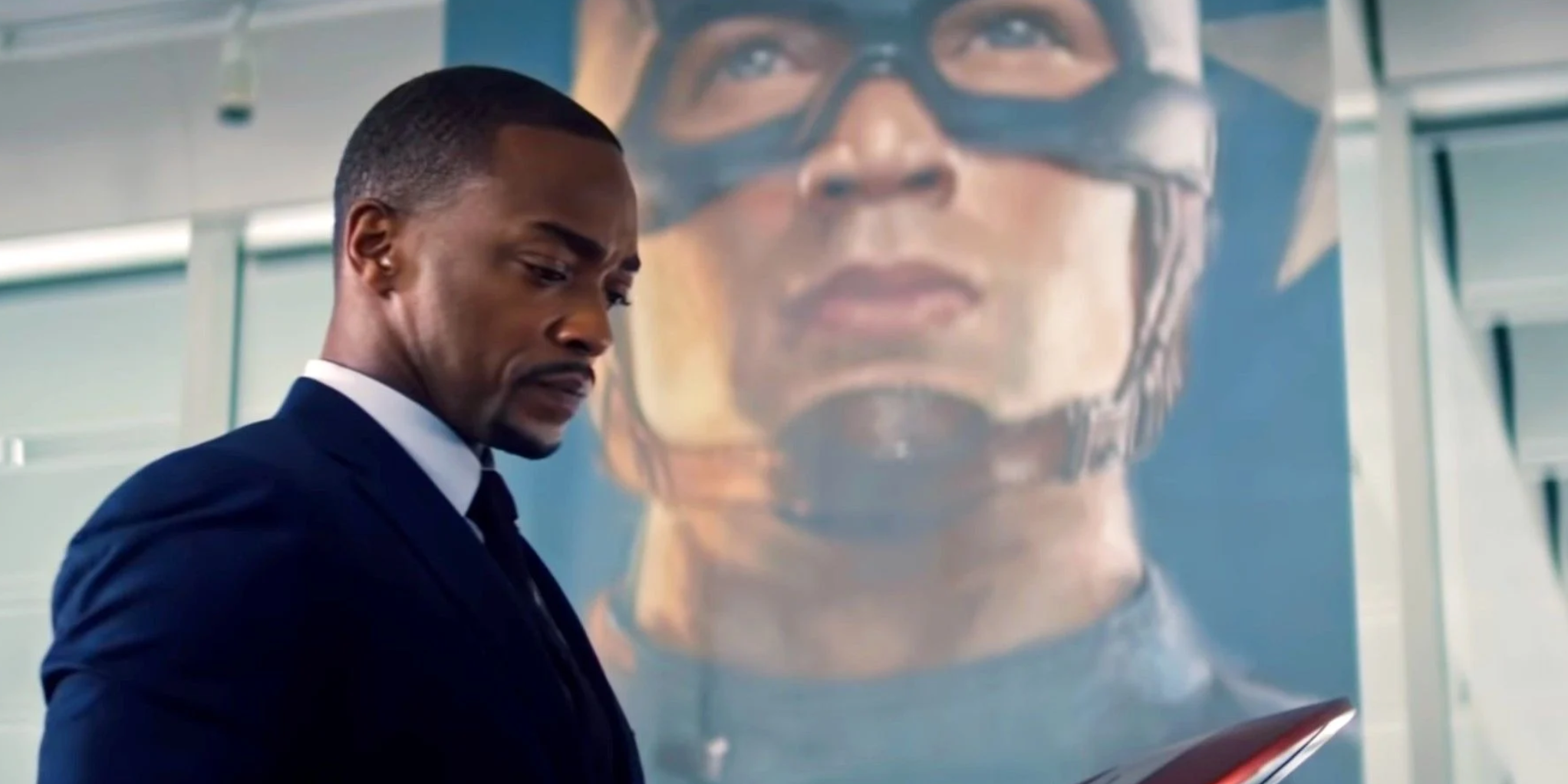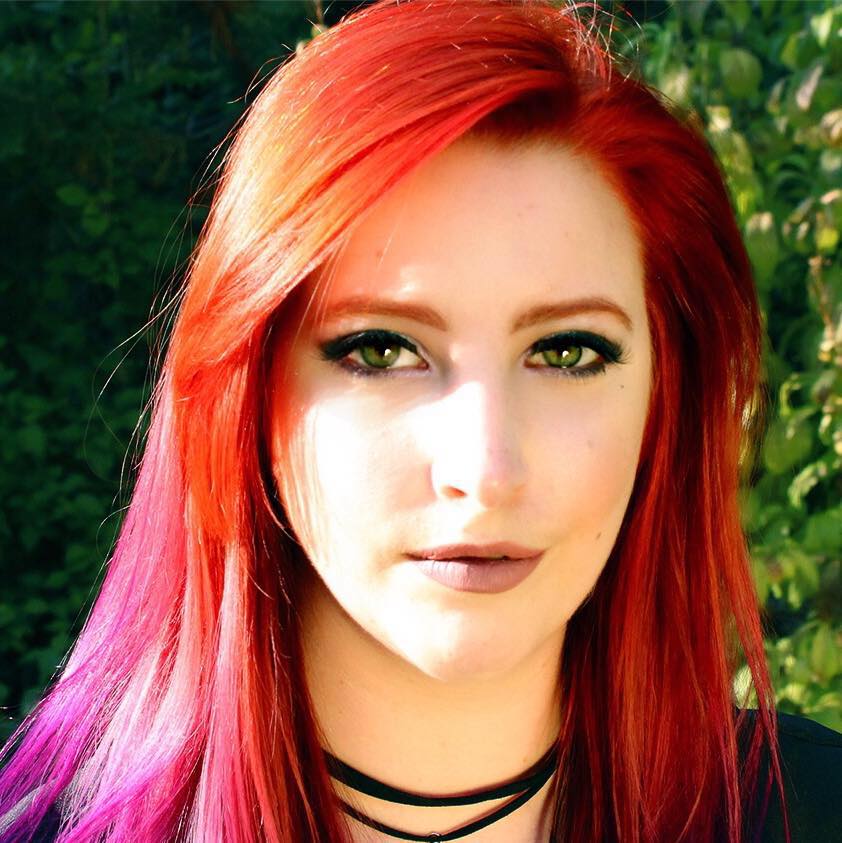'The Falcon and the Winter Soldier' and the tale of two Americas
What is a legacy?

The latest updates, reviews and unmissable series to watch and more!
You are now subscribed
Your newsletter sign-up was successful
Want to add more newsletters?

ONCE A WEEK
What to Watch
Get all the latest TV news and movie reviews, streaming recommendations and exclusive interviews sent directly to your inbox each week in a newsletter put together by our experts just for you.

ONCE A WEEK
What to Watch Soapbox
Sign up to our new soap newsletter to get all the latest news, spoilers and gossip from the biggest US soaps sent straight to your inbox… so you never miss a moment of the drama!
This post contains spoilers for The Falcon and the Winter Soldier.
The Falcon and the Winter Soldier has spent a lot of time talking about legacy. Both in the MCU and out of it, Steve Rogers represents a lot of things to a lot of people. Like all symbols, that legacy can be twisted and turned until it fits the closed-minded perspective of anyone who chooses to wield it. We see the Punisher logo with the blue lives matter flag splattered on trucks all across America. The same thing happens with the symbol of the House of El (it’s not an “S”), or even when avid gun supporters co-opt the Bat symbol. But the right person becomes The Punisher, you're born into the House of El, and the members of the Bat Family that break off from Bruce's anti-gun policy differentiate their symbol from Bruce's or separate themselves from it entirely. But what happens when the symbol is simply handed to the very last kind of person who should be representing it, or when the people who choose to hide behind said symbol without understanding it become the louder voice?
Folks who support flagrant racism and a broken system that holds them up as some sort of “true” representation of the American people have propped up Cap's shield for some time. They plaster the logo on everything they can the same way they do the American flag believing that somehow they’re the ones getting it right. And why shouldn’t they? A huge number of the people in power look, sound, and act the same way they do, and they have from the moment this country was founded. People like this pose a huge risk to anyone who doesn’t look or think like them, but they’re not the biggest threat to the ideal that America — or its hero — claims to uphold.
White moderates — men like the John Walker we meet in the beginning of the series — make up a much larger portion of the American population, and an infinitely more dangerous one. That very important distinction is represented in The Falcon and the Winter Soldier, albeit very shakily. Walker's America's man's man! The kind of guy that returns to his hometown's high school football stadium to his own version of "Star Spangled Man with a Plan." Both he and Cap have certain anxieties about the song and the little dance they're expected to do along with it, but they're for completely different reasons. Steve's stress is that he's not doing enough. Walker's? All of his anxiety is rooted in his public image.
The distinction between the two men is such a critical aspect of the series. The writing hasn't been very apt at pointing it out, but the characterizations do the work themselves: Steve Rogers represents what America wants to be. John Walker represents what America is.
Fans have questioned why the series hardly bothered to make John Walker a palatable character, or why it didn’t go out of its way to justify why he was the man the government chose to fill the monumental boots of Steve Rogers. But the answer to that question is very simple: John Walker is exactly who the American government wants as their Captain America. He follows orders no matter what. He’s got a Black wife and a Black best friend, so he couldn’t possibly be a bad person. In their eyes, Walker’s the picture-perfect golden boy that truly is a representation of the American people. Colonel Phillips would have wet his pants trying to get Walker into the Super Soldier Program back in WWII, but Phillips (no matter how funny) illustrates the American government’s lack of understanding of who should and shouldn’t wield the power of a super soldier.
“Whatever happens tomorrow, you must promise me one thing. That you will stay who you are, not a perfect soldier, but a good man.”
Dr. Erskine
Steve Rogers was, is, and always will be the good man. John Walker was, is, and always will be the perfect soldier. And that’s why he never should have been allowed within a mile of the shield. All Rogers did was break the rules, whether it be lying to fight the Nazis or becoming an enemy of the state when the hugely immoral Sokovia Accords were drafted. Meanwhile, we can see that John Walker knows what he did in Afghanistan was wrong, but he did it anyway.
The latest updates, reviews and unmissable series to watch and more!
Even worse, that realization means nothing. We learn from his conversation with Battlestar that what they did to earn those medals of honor haunts him. But it doesn't haunt him enough to do right because he’s never been affected by what’s wrong. He’s not interested in the displaced people the Flag Smashers are fighting for, or the myriad of systemic problems the country faces. All he’s worried about is his image.
Whether we want to admit it or not, that last paragraph — outside of the medals of honor — represents a huge number of the American people. If you ask the passerby if racism, sexism, or whatever other “ism” you can think of at the time is wrong, they’re very likely to say “yes.” If you follow that up with a question of what they’re doing about it, you’ll more often than not be met with uncomfortable silence or something absurd like “I’m teaching my kids not to see color.”
All of that may be heavier themes than what some want to see in their superhero content, but that thought process in and of itself has inherent privilege to it. It sucks to have these conversations in the content that’s meant to be escapism. What sucks worse is these “themes” being a huge portion of America's everyday life. It’s that very message that you can see The Falcon and the Winter Soldier attempting to tackle, it’s just not doing it very well.
A very important detail that we’re hopefully building to Sam realizing in the series is that it was Steve Rogers that was the symbol when it was all said and done. The shield was just the tool he used to fight for what he always believed America could be. There’s so much jumbled up in the thought process of what said symbol means instead of attempting to understand what it’s meant to be used for. The only way to do that legacy wrong is to choose not to use its power to fight for what America can and should be. Because if the right people don’t stand up and use that power, the wrong people always will. John Walker has been handed a tool he’s not meant to wield. Not all of us can put magic spells on our weapons to stop unworthy folks from carrying them. Steve might be able to toss both around, but a hunk of vibranium and Mjolnir are still very different.
Steve knew that when he chose Sam to be the next Captain America. No one can begrudge Falcon for not being able to realize that at first — Sam Wilson knows exactly what America is. He knows full well that one man cannot change that, so why risk damaging Steve’s legacy trying? For us, the viewer, that answer’s typed right above this paragraph. For Sam, that's a little bit more of a process.
The thing is, none of that has to do with Sam Wilson being dumb (despite episode 3's attempts to illustrate him as such). It's more to do with Steve's privilege than anything, even if the choice was made with all the best intentions. In Rogers' mind, Sam Wilson is the best man to take on that shield for all of the reasons that Sam's concerned to. There should be a Black Captain America (Rogers presumably had no idea about Isaiah Bradley). There should be a voice that understands more of America's struggles than a white dude from a bygone era. That shield should only ever be held by someone who understands what a powerful tool it can be. Frankly? It probably shouldn't be in the hands of someone the American government agrees with all the time, either. But Steve didn't think to say such things. To him, the choice is obvious. To Sam, there's a little bit more grey.
There are two versions of America, and the government has only ever had any interest in taking care of one. At the time of publishing this piece, another Black man was murdered by a cop while another (former) officer is on trial for doing the very same thing. Another school shooting happened in Tennessee. There are institutions and rules in place to protect those in blue and the systemic terror they unleash on Black communities. Meanwhile, the NRA maintains such a tight hold on our senate that we've continue to let our children be murdered in their schools for over a decade.
Captain America, a character meant to portray the American ideal, should never be anyone in support of that. Sam's worried he can't live up to a legacy while simultaneously wondering how much of that legacy is tied to an America that would keep him, his family, and his friends in the dirt. But those concerns and the very fact that he understands the difference between the real America and the American ideal is exactly why he's meant to carry that shield. You can't fight to defend what America is meant to be if you don't have a basic understanding of the assignment to begin with.
Sam’s story — if told right — will be his journey to realizing that. We’re at a point in The Falcon and the Winter Soldier where I have some sincere doubts about its ability to achieve that “if told right” part, but we’ll see.
Amelia is an entertainment Streaming Editor at IGN, which means she spends a lot of time analyzing and editing stories on things like Loki, Peacemaker, and The Witcher. In addition to her features and editorial work, she’s also a member of both the Television Critics Association and Critics Choice. A deep love of film and television has kept her happily in the entertainment industry for 7 years.


